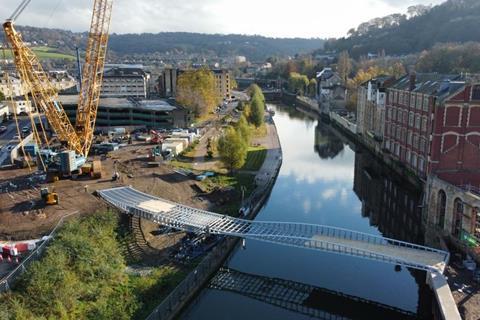For many developers, historic assets are offputting and for understandable reasons. After all, they often come with strict rules about what can be done to them – sometimes very little indeed.

Moreover, if they have previously been used for industrial purposes, the land may well need decontaminating, which is both time-consuming and costly.
At TCN, however, we see things differently. We have made repurposing historic assets our calling card, from London to Birmingham to Bristol – and now Bath. There is inherent value in historic buildings that more than makes up for the challenges that they entail. Here’s why.
Heritage assets intrinsically have a sense of place, which has value in itself. Our Newark Works project in Bath (pictured) comprises four unique buildings that were once owned by engineering firm Stothert & Pitt, which developed the first steam crane in 1851. The company was a major employer in the city and a key part of Bath’s history.
With the right design, such buildings can also make for engaging places to work, something that is particularly important at the moment. We are, after all, in the midst of a workplace revolution, with employers that value face-to-face engagement having to lure workers back to the office by any means necessary. Providing an inspirational working environment that cannot be replicated at home is a big carrot.

Just as importantly, repurposing heritage assets – as opposed to knocking them down and starting again – is the inherently green option. Floorspace at Newark Works amounts to around 40,000 sq ft and our engineering consultants Buro Happold found that demolition and rebuild would have resulted in a carbon bill of 1,451 tonnes. The equivalent figure for repurposing the buildings is 406 tonnes. Such statistics speak for themselves.
So, the case for making use of heritage assets is strong. Done well, they are attractive to occupiers and contribute meaningfully to the regeneration of areas of cities of historic importance. For us, the question is not ‘what are the challenges?’ but ‘what’s not to like?’
Richard Pearce is founder and director of TCN UK






























No comments yet